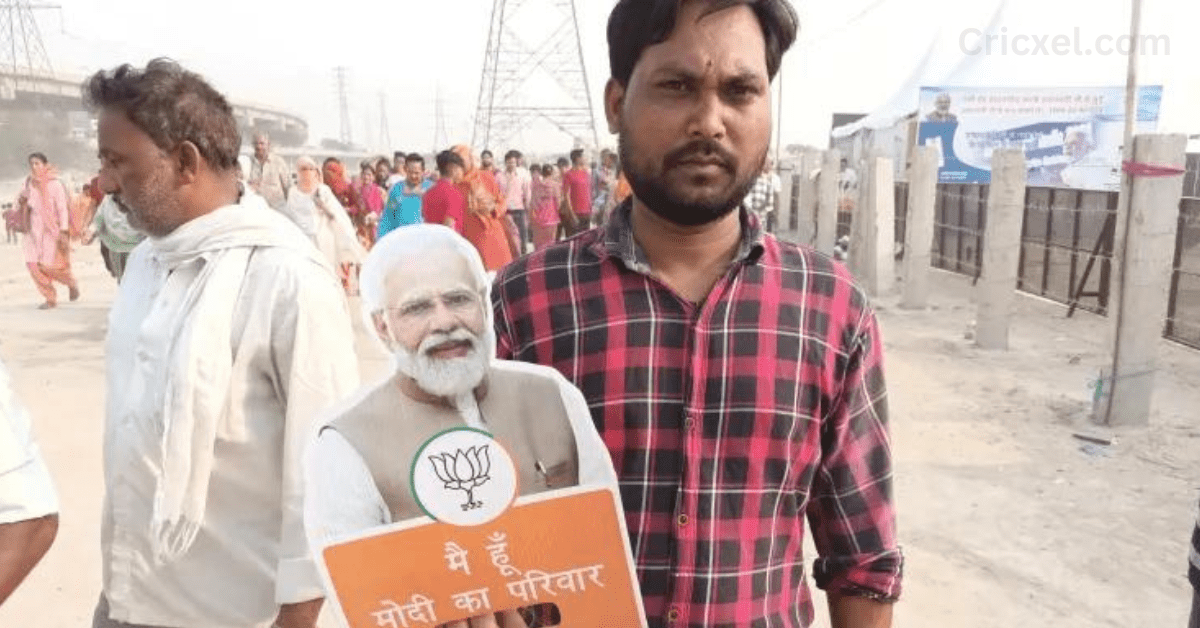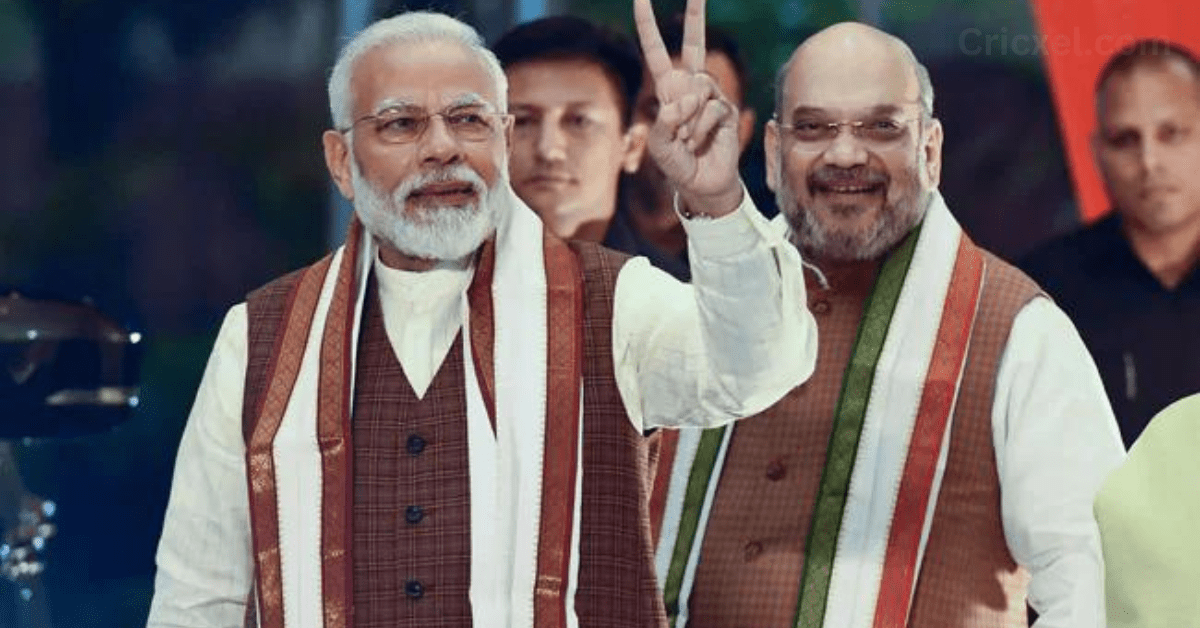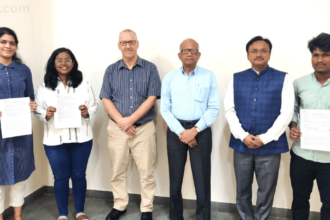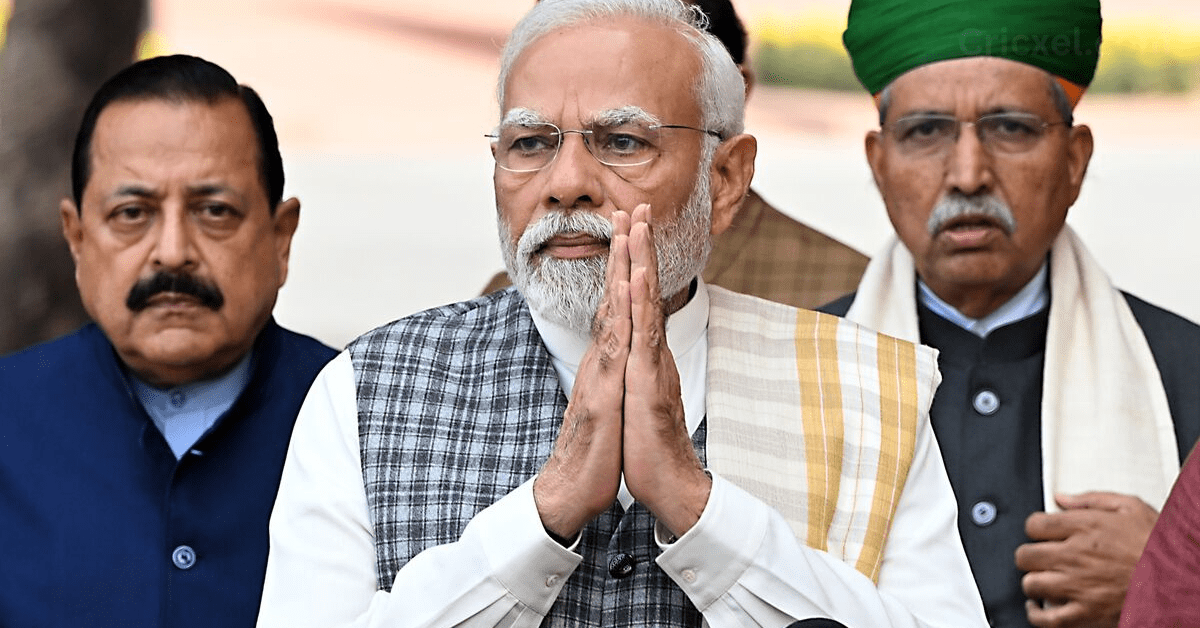Before going back to prison on Sunday, a prominent opponent of Indian Prime Minister Narendra Modi pledged to continue opposing dictatorship. The elections are largely predicted to result in another resounding success for the Hindu-nationalist leader.
A “political conspiracy” led by Modi’s governing Bharatiya Janata Party (BJP) is how colleagues have described Arvind Kejriwal, one of numerous opposition leaders under criminal investigation, regarding his incarceration one month prior to the April general elections.
Kejriwal, the chief minister of Delhi’s capital and a pivotal figure in a coalition formed to oppose Modi, was arrested in March due to an ongoing corruption investigation.
After that, he was freed to run for office, but after the election, he was told to go back to jail.
Kejriwal declared, “Jail becomes a responsibility when power becomes [a] dictatorship.” He also vowed to keep “fighting” from behind bars.
At his Aam Aadmi party headquarters, he gave an emotional farewell speech to his followers, saying, “I don’t know when I will return.”
“I have no idea what they have in store for me, but every drop of blood I shed is for my country.” Later thereafter, Kejriwal went back to prison, an AFP spokeswoman for the party said.
Take Care of Yourselves
According to exit polls, Modi was expected to win. The prime minister expressed confidence that “the people of India have voted in record numbers” to continue his government.

Tuesday’s results are anticipated, but Modi’s followers in Varanasi, the Hindu religion’s spiritual center, stated they were confident in their leader’s victory.
While selling flowers outside a shrine, Nand Lal said, “His government is coming back.”
Voting in the sixth and final staggered round of the six-week survey came to a close on Saturday despite very hot weather over most of the nation.
When his administration decided to liberalize the sale of alcohol in 2021 and give up a sizable government stake in the industry, accusations of corruption were leveled against it.
The next year, the policy was reversed, but not before an investigation into the purportedly dishonest licensing process resulted in the incarceration of two prominent Kejriwal loyalists.
Kejriwal, who has always denied misconduct and declined to resign from his position, earlier remarked on social media, “Take care of yourselves, everyone.”
“I’ll look after you all while you’re in jail.”
Aim for political rivals
International human rights organizations and Modi’s political rivals have long warned of dangers to India’s democracy. This year, the BJP was accused of “increasingly using government institutions to target political opponents,” according to a report by the US research tank Freedom House.
Following a complaint by a member of Modi’s party, Rahul Gandhi, the most well-known opposition Congress party member and the heir of a political family that ruled India for decades, was found guilty of criminal libel last year.

His two-year prison term banned him from parliament until a higher court stayed the conviction, raising questions about democratic principles in the most populous country in the world.
In February, Hemant Soren, the former chief minister of Jharkhand, an eastern state, was also taken into custody as part of an unrelated corruption investigation.
Kejriwal, Rahul Gandhi, and Soren are all part of an opposition coalition that includes over twenty parties; yet, the bloc has had difficulty gaining ground against Modi.
UP election chief: 33 poll workers perished from heatstroke on the final day of voting
Following days of intense heatwaves that affected large portions of the nation, a top election official announced on Sunday that at least 33 poll workers in India passed away from heatstroke on the last day of voting in just one state.
The severe heatwave, which saw temperatures exceeding 45 degrees Celsius (113 degrees Fahrenheit) in numerous locations, has been linked to several deaths, but the number of staff members who perished on a single day is particularly alarming.
According to the India Meteorological Department (IMD), Jhansi, Uttar Pradesh, had temperatures as high as 46.9°C (116°F).
The seventh and last round of voting in the northern state of Uttar Pradesh concluded on Saturday. According to chief electoral officer Navdeep Rinwa, 33 poll workers passed away from the heat. Sanitation workers and security personnel were included in the number.
“The families of the deceased will receive a monetary compensation of 1.5 million rupees ($18,000),” Rinwa said reporters. According to experts, prolonged exposure to intense heat thickens the blood and induces organ failure in dehydrated individuals.
More–
Trump’s Criminal Conviction Found Guilty on All Counts Creates History
A guy lost consciousness while waiting in line to cast his ballot in the city of Ballia, according to a different event that Rinwa reported. “The voter was taken to a medical facility, whereupon he was declared deceased,” Rinwa stated.
India is accustomed to extremely hot summers. However, years of scientific study have shown that heatwaves are become longer, more frequent, and more powerful due to climate change.





